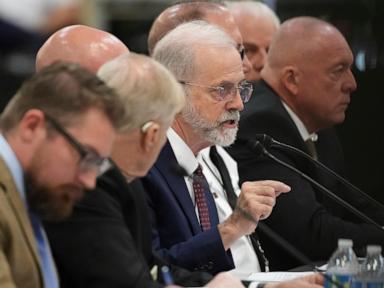Texas lawmakers have converged on the devastated Hill Country, initiating critical legislative hearings to investigate the tragic aftermath of the deadly July 4 floods. This pivotal moment sees officials from Kerr County facing intense scrutiny over their preparedness and emergency management strategies, as the state grapples with the immense loss of life and widespread destruction that swept across the region.
The heart of the devastation lies in Kerr County, where the fast-rising waters of the Guadalupe River tragically claimed at least 136 lives, including a significant number of young campers and counselors from Camp Mystic. Homes and recreational vehicles were obliterated, prompting an urgent demand for answers regarding the effectiveness of local disaster response and communication systems.
Thursday’s hearing marks the first time state legislators have visited the hard-hit areas since the catastrophic event. Local leaders, who have consistently defended their actions and preparations, were invited to testify before the committee, alongside distraught residents eager to voice their experiences and concerns directly to lawmakers.
Further intensifying the inquiry, authorities have begun releasing crucial records, including harrowing 911 calls and logs. These documents offer a chilling glimpse into the escalating danger and chaos that unfolded during the early hours of the holiday, revealing panicked pleas from individuals trapped in trees and families desperately fleeing their homes as floodwaters rapidly rose.
Despite the public release of some information, Kerr County officials have notably resisted several Texas Public Information requests from The Associated Press for additional 911 calls and body-camera footage related to the floods. This stance has raised further questions about transparency and the completeness of the publicly available record surrounding the disaster.
The legislative focus on flood relief and disaster preparedness occurs amid a demanding 30-day special session, which has also been dominated by highly contentious debates over redrawing the state’s electoral maps. The urgency of addressing the flood crisis has been underscored by ongoing political maneuvering, as House Democrats have launched protests, even leaving the state, to pressure Republicans to prioritize disaster aid.
Governor Greg Abbott, who added flood relief to the special session agenda, has refrained from assigning blame for the disaster. He and other Texas Republicans have largely aligned with local officials who describe the scale of the floods as an unforeseen catastrophe. This perspective contrasts with some critics who believe more could have been done to mitigate the impact.
In response to the tragedy, lawmakers have introduced several bills aimed at bolstering the state’s resilience against future floods. Proposed legislation includes provisions for funding advanced early warning systems, enhancing emergency communications infrastructure, and strengthening flood-prone areas, particularly along vulnerable river systems like the Guadalupe.
The ongoing discussions highlight a stark divide: while some officials call for better accreditation for county response units, Democrats continue to question the sufficiency of existing infrastructure and prior investments in flood-prone rural areas. The legislative hearings are a crucial step in understanding the complex factors contributing to the disaster and charting a path toward improved flood preparedness for all Texans.






Leave a Reply